Candy
about Candy: click here to read more
The Etymology of the word ‘candy’ comes from the Arabic word "qandi" (قندي), which means "sugared" or "sugar." This, in turn, comes from the Persian word "qand" (قند), meaning "sugar," which was derived from Sanskrit "kanda" (कंद), meaning "sugar" or "sugar cane.”
The word entered European languages through the Crusaders' interactions with the Arab world during the medieval period, where sugar was used extensively in cooking and candy-making. The term "candy" started to appear in English in the 16th century to refer to sugar-based confections.
Sugar from the newly established trade routes became more accessible, allowing for the creation of more complex confections.
Candied fruits, sugar-coated nuts, and boiled sugar confections were made by hand. The early stages of modern candy-making began with the development of sugar-based treats that were more recognizable as the candies we know today.
Candy bars, lollipops, jelly beans, and chocolates became widely available to people of all social classes. Major candy brands such as Mars, Nestlé, and Cadbury were founded, cementing the widespread appeal of candy as a sweet treat enjoyed by people worldwide. (A great listen to is the podcast about Mars Inc, on ACQUIRED https://www.acquired.fm)
-

 Restocking - choose Notify me
Restocking - choose Notify mePruneaux d'Agen Fourrés - Prunes from Agen stuffed with Prune Mousse
Regular price $36.95 USDRegular priceUnit price / per$0.00 USDSale price $36.95 USDRestocking - choose Notify me -

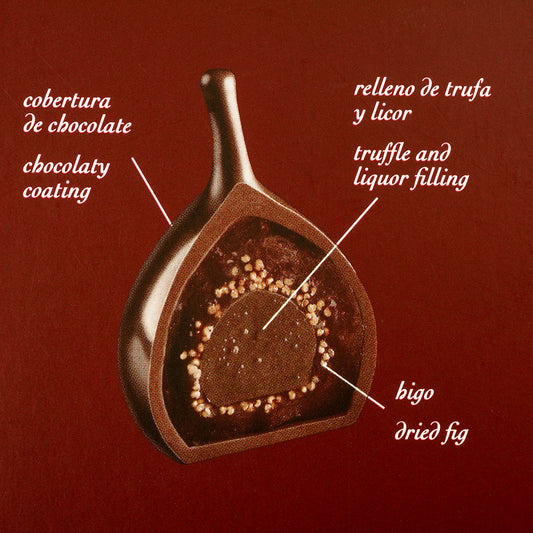 Restocking - choose Notify me
Restocking - choose Notify meRabitos Chocolate Stuffed Figs - 8 figs
Regular price $24.55 USDRegular priceUnit price / per$0.00 USDSale price $24.55 USDRestocking - choose Notify me -

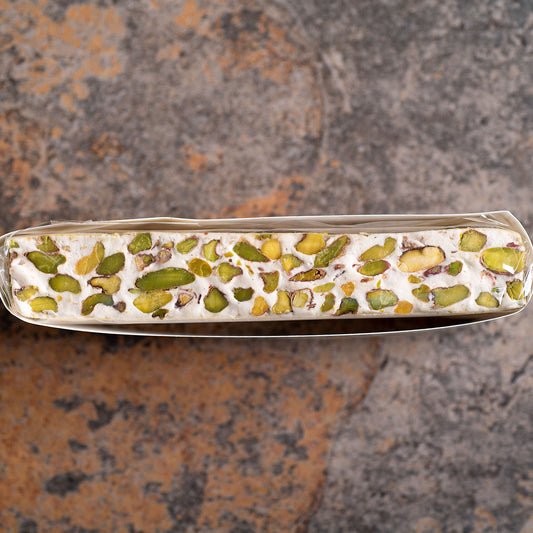 Restocking - choose Notify me
Restocking - choose Notify meBrontedolci Torrone Morbido al Pistacchio - Soft Pistachio Nougat
Regular price $19.95 USDRegular priceUnit price / per$0.00 USDSale price $19.95 USDRestocking - choose Notify me -
 Restocking - choose Notify me
Restocking - choose Notify me3 French Marshmallow Sticks - 1 of each flavor
Regular price $8.95 USDRegular priceUnit price / per$0.00 USDSale price $8.95 USDRestocking - choose Notify me -

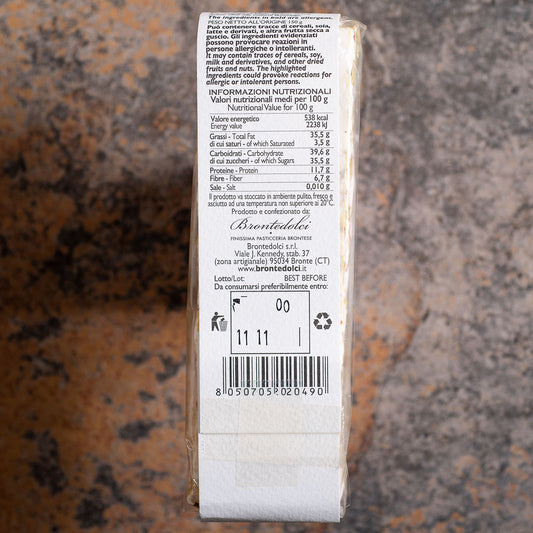 Restocking - choose Notify me
Restocking - choose Notify meBrontedolci Torrone Morbido Torrone Alla Mandorla e Canditi - Almond Torrone with Candied Orange
Regular price $12.95 USDRegular priceUnit price / per$0.00 USDSale price $12.95 USDRestocking - choose Notify me -

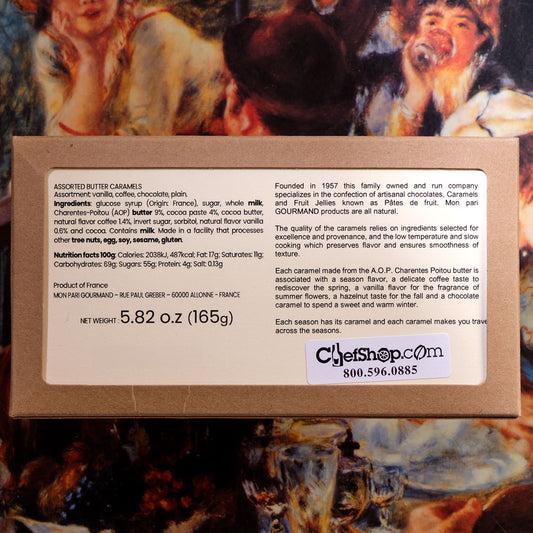 Restocking - choose Notify me
Restocking - choose Notify meMon Pari Caramels Assorted Butter Caramels
Regular price $19.95 USDRegular priceUnit price / per$0.00 USDSale price $19.95 USDRestocking - choose Notify me -

 Restocking - choose Notify me
Restocking - choose Notify meLakrids C Chocolate Coated Licorice with Coffee
Regular price $15.95 USDRegular priceUnit price / per$0.00 USDSale price $15.95 USDRestocking - choose Notify me -
 Restocking - choose Notify me
Restocking - choose Notify meFlamigni Soft Pistachio Torrone Wedge
Regular price $19.95 USDRegular priceUnit price / per$0.00 USDSale price $19.95 USDRestocking - choose Notify me -
 Restocking - choose Notify me
Restocking - choose Notify meRJs Soft Red Licorice
Regular price $8.95 USDRegular priceUnit price / per$0.00 USDSale price $8.95 USDRestocking - choose Notify me -
 Restocking - choose Notify me
Restocking - choose Notify meGuerande Salt Butter Caramels Tendres - Squares
Regular price $16.95 USDRegular priceUnit price / per$0.00 USDSale price $16.95 USDRestocking - choose Notify me -

 Restocking - choose Notify me
Restocking - choose Notify meAntica Torroneria Piemontese Tartufo Extranero - Extra Dark Truffles
Regular price $17.95 USDRegular priceUnit price / per$0.00 USDSale price $17.95 USDRestocking - choose Notify me -

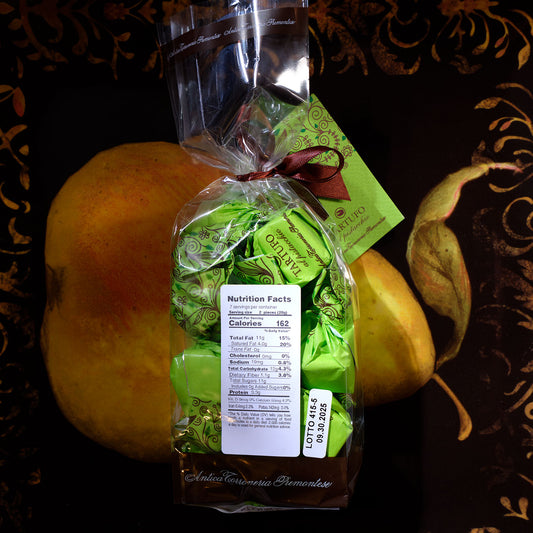 Restocking - choose Notify me
Restocking - choose Notify meAntica Torroneria Piemontese Tartufo al Pistachio - Pistachio Chocolate Truffles
Regular price $18.95 USDRegular priceUnit price / per$0.00 USDSale price $18.95 USDRestocking - choose Notify me -

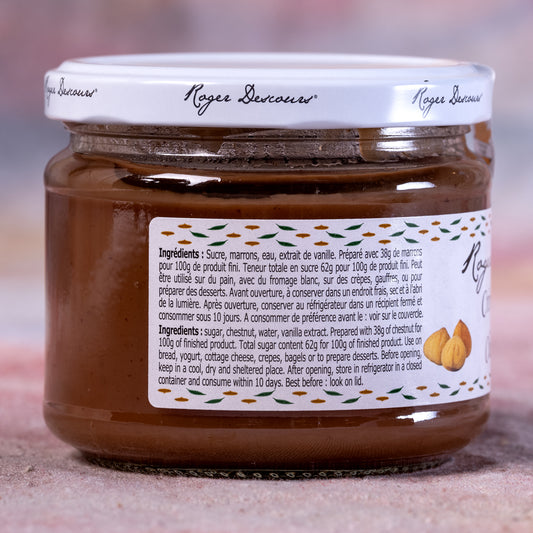 Restocking - choose Notify me
Restocking - choose Notify meRoger Descours Chestnut Cream
Regular price $6.95 USDRegular priceUnit price / per$0.00 USDSale price $6.95 USDRestocking - choose Notify me -
 Restocking - choose Notify me
Restocking - choose Notify meBodrato Grappa Chocolate-Covered Cherries - Cute Hat Box
Regular price $34.95 USDRegular priceUnit price / per$0.00 USDSale price $34.95 USDRestocking - choose Notify me -

 Restocking - choose Notify me
Restocking - choose Notify meLe Petit Duc Calissons a la Rose
Regular price $14.95 USDRegular priceUnit price / per$0.00 USDSale price $14.95 USDRestocking - choose Notify me -

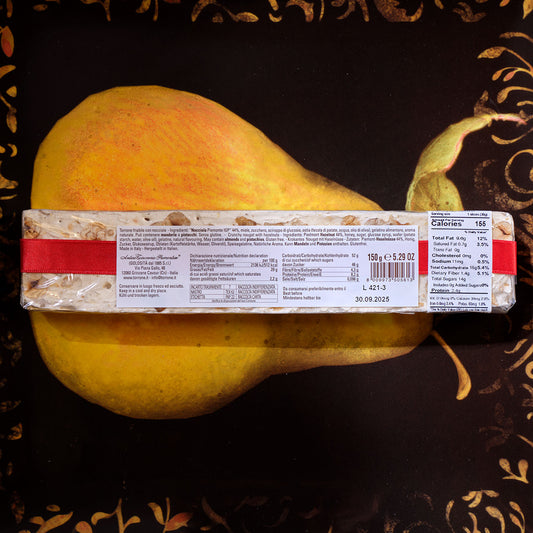 Restocking - choose Notify me
Restocking - choose Notify meAntica Torroneria Piemontese Torrone Friable Con nocciole - Hard torrone with Hazelnuts
Regular price $16.95 USDRegular priceUnit price / per$0.00 USDSale price $16.95 USDRestocking - choose Notify me -

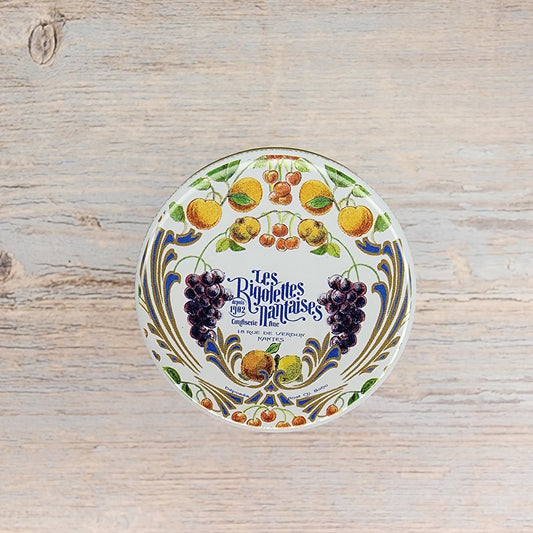 Restocking - choose Notify me
Restocking - choose Notify meLes Rigolettes Nantaises Fruit Bonbons in Tin - 30 grams
Regular price $9.95 USDRegular priceUnit price / per$0.00 USDSale price $9.95 USDRestocking - choose Notify me -
 Restocking - choose Notify me
Restocking - choose Notify meOlive and Sinclair Salt and Vinegar Caramels
Regular price $23.95 USDRegular priceUnit price / per$0.00 USDSale price $23.95 USDRestocking - choose Notify me -
 Restocking - choose Notify me
Restocking - choose Notify mePecou LiquiCroc Caramel Dragees - 1 kilo box
Regular price $52.95 USDRegular priceUnit price / per$0.00 USDSale price $52.95 USDRestocking - choose Notify me -

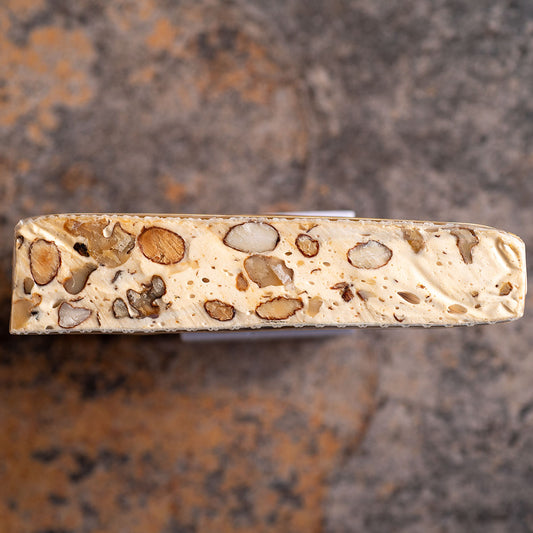 Restocking - choose Notify me
Restocking - choose Notify meLe Petit Duc French Des Cevennes (Almond and Walnut) Nougat
Regular price $11.95 USDRegular priceUnit price / per$0.00 USDSale price $11.95 USDRestocking - choose Notify me -

 Restocking - choose Notify me
Restocking - choose Notify meLakrids Pink Pineapple Chocolate-Covered Sweet Licorice
Regular price $14.95 USDRegular priceUnit price / per -

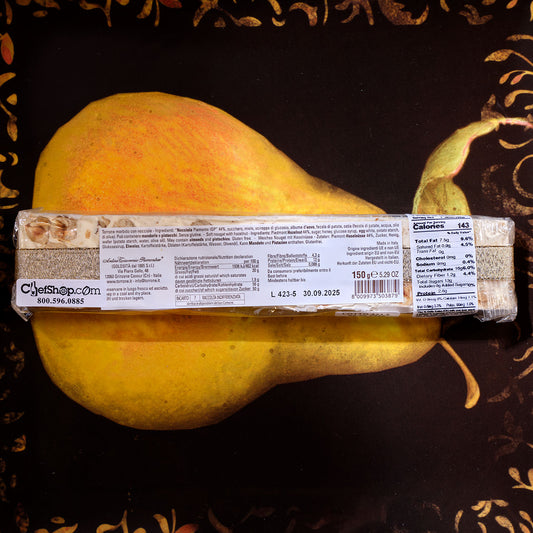 Restocking - choose Notify me
Restocking - choose Notify meAntica Torroneria Piemontese Torrone Morbido con nocciole - Soft Nougat with Hazelnut
Regular price $16.95 USDRegular priceUnit price / per$0.00 USDSale price $16.95 USDRestocking - choose Notify me -
 Restocking - choose Notify me
Restocking - choose Notify mePecou Chocolate Covered Meringues - 1/2 kilo box
Regular price $31.95 USDRegular priceUnit price / per$0.00 USDSale price $31.95 USDRestocking - choose Notify me -

 Restocking - choose Notify me
Restocking - choose Notify meNougat de Montelimar - France
Regular price $11.95 USDRegular priceUnit price / per$0.00 USDSale price $11.95 USDRestocking - choose Notify me -
Restocking - choose Notify me
Italian Hard Candies with Siracusian Lemon
Regular price $3.95 USDRegular priceUnit price / per$0.00 USDSale price $3.95 USDRestocking - choose Notify me -

 Restocking - choose Notify me
Restocking - choose Notify meKlepper & Klepper Sweet Licorice Candy
Regular price $8.55 USDRegular priceUnit price / per$0.00 USDSale price $8.55 USDRestocking - choose Notify me -

 Restocking - choose Notify me
Restocking - choose Notify meLe Petit Duc Calissons with Extra Orange
Regular price $14.55 USDRegular priceUnit price / per$0.00 USDSale price $14.55 USDRestocking - choose Notify me -

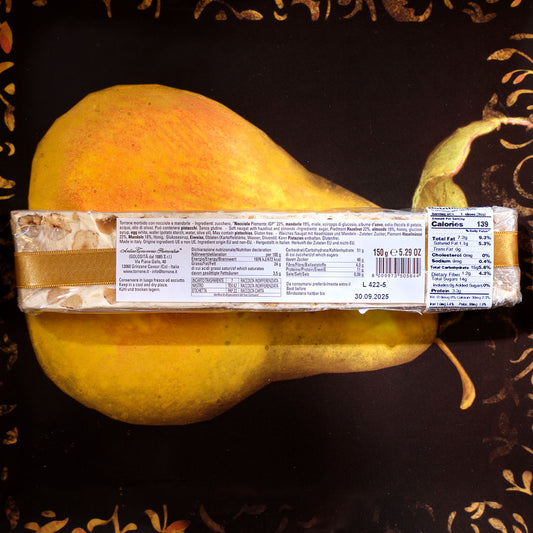 Restocking - choose Notify me
Restocking - choose Notify meAntica Torroneria Piemontese Torrone Morbido - Soft Nougat with Hazelnuts and Almonds
Regular price $15.95 USDRegular priceUnit price / per$0.00 USDSale price $15.95 USDRestocking - choose Notify me -

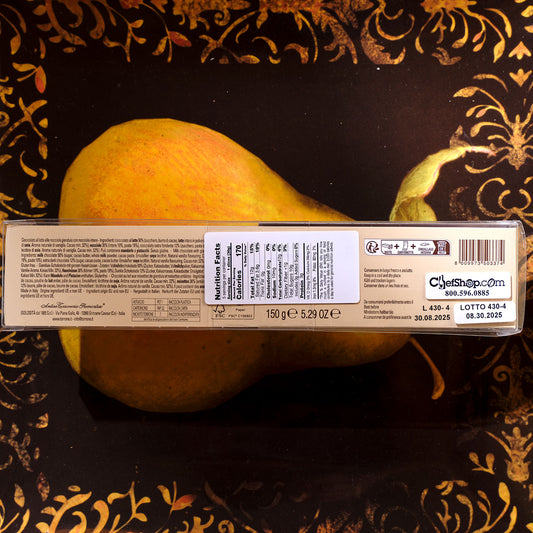 Restocking - choose Notify me
Restocking - choose Notify meAntica Torroneria Piemontese Nocciolato Gianduja - Chocolate and Hazelnuts
Regular price $18.95 USDRegular priceUnit price / per$0.00 USDSale price $18.95 USDRestocking - choose Notify me -
Restocking - choose Notify me
Les Anis de Flavigny Anise Candies - Tin
Regular price $7.95 USDRegular priceUnit price / per$0.00 USDSale price $7.95 USDRestocking - choose Notify me -

 Restocking - choose Notify me
Restocking - choose Notify meAntica Torroneria Piemontese Tartufo Stracciatella - white chocolate with Dark Chocolate Chips
Regular price $17.95 USDRegular priceUnit price / per$0.00 USDSale price $17.95 USDRestocking - choose Notify me -

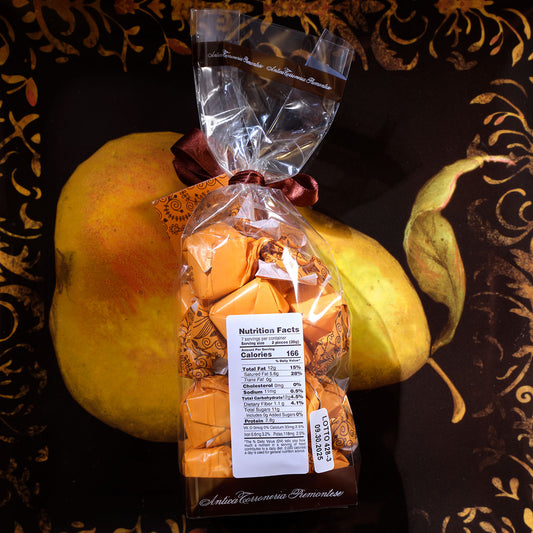 Restocking - choose Notify me
Restocking - choose Notify meAntica Torroneria Piemontese Tartufo Gianduja - Chocolate Truffles
Regular price $22.95 USDRegular priceUnit price / per$0.00 USDSale price $22.95 USDRestocking - choose Notify me -

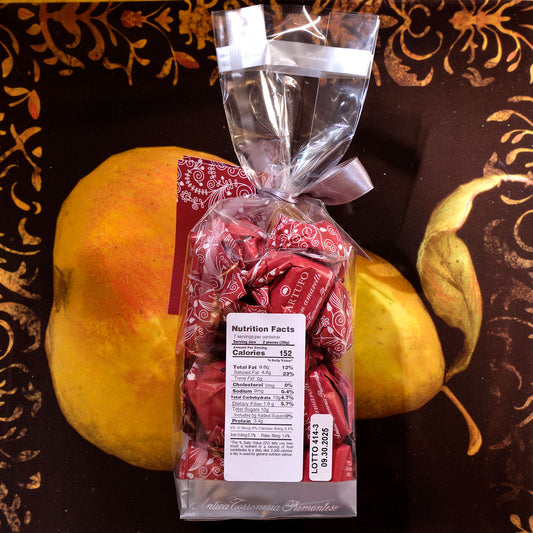 Restocking - choose Notify me
Restocking - choose Notify meAntica Torroneria Piemontese Tartufo Con Amaretti - Milk Chocolate Tartufi with Amaretti
Regular price $26.95 USDRegular priceUnit price / per$0.00 USDSale price $26.95 USDRestocking - choose Notify me -

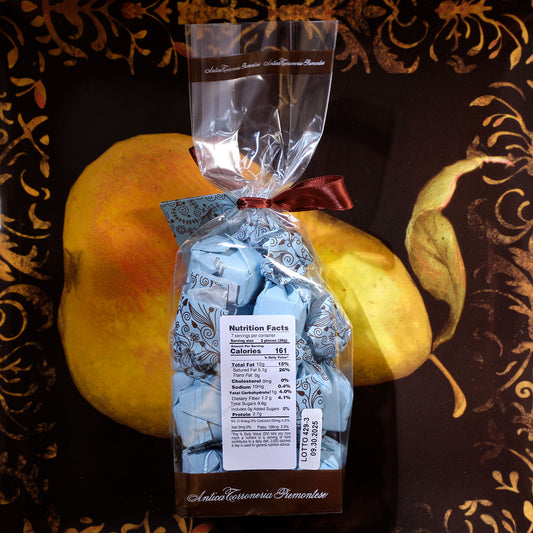 Restocking - choose Notify me
Restocking - choose Notify meAntica Torroneria Piemontese Tartufo al Cappuccino
Regular price $21.95 USDRegular priceUnit price / per$0.00 USDSale price $21.95 USDRestocking - choose Notify me -

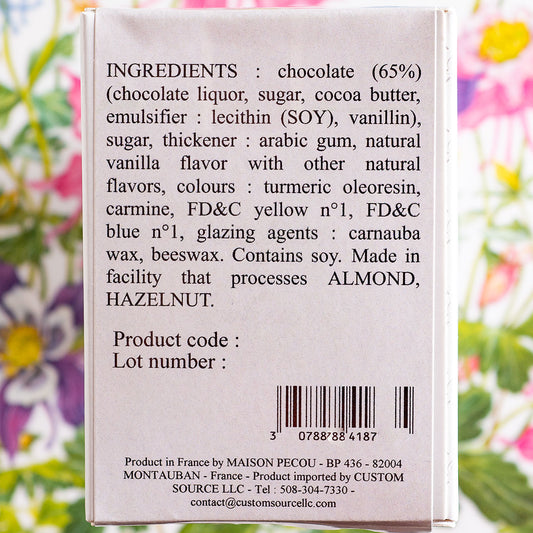 Restocking - choose Notify me
Restocking - choose Notify mePecou Mini Dark Chocolate Hearts
Regular price $10.95 USDRegular priceUnit price / per$0.00 USDSale price $10.95 USDRestocking - choose Notify me -

 Restocking - choose Notify me
Restocking - choose Notify meLe Petit Duc French Pistachio Nougat Aux Pistaches
Regular price $13.95 USDRegular priceUnit price / per$0.00 USDSale price $13.95 USDRestocking - choose Notify me




























































